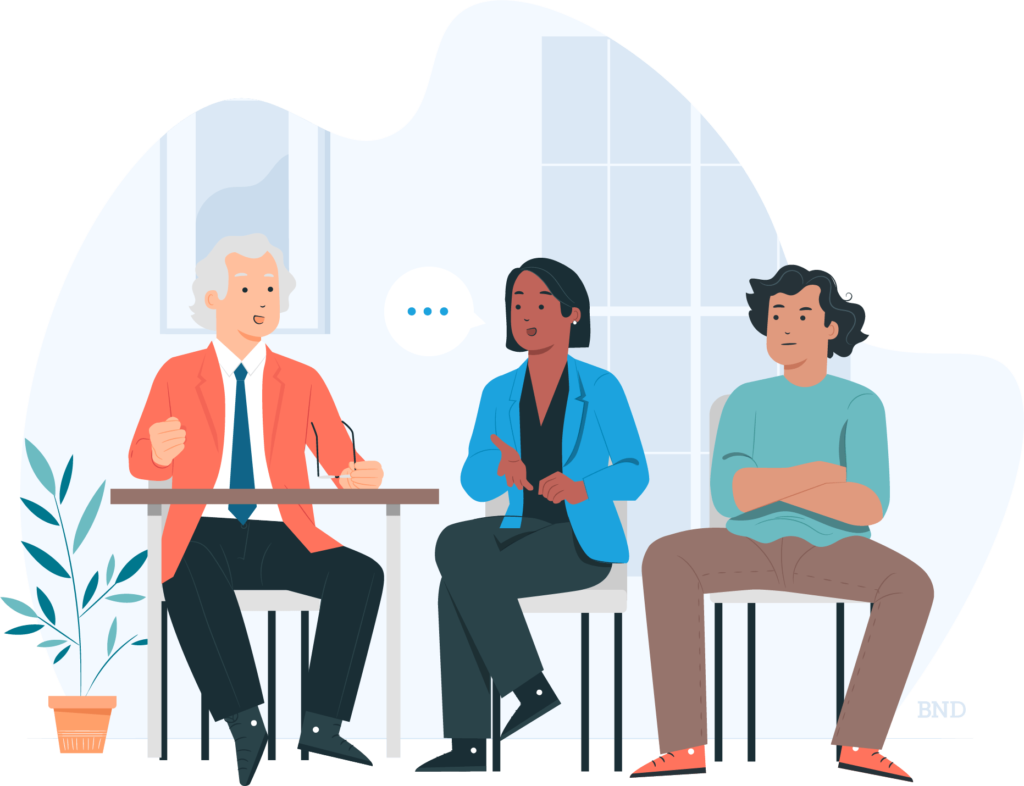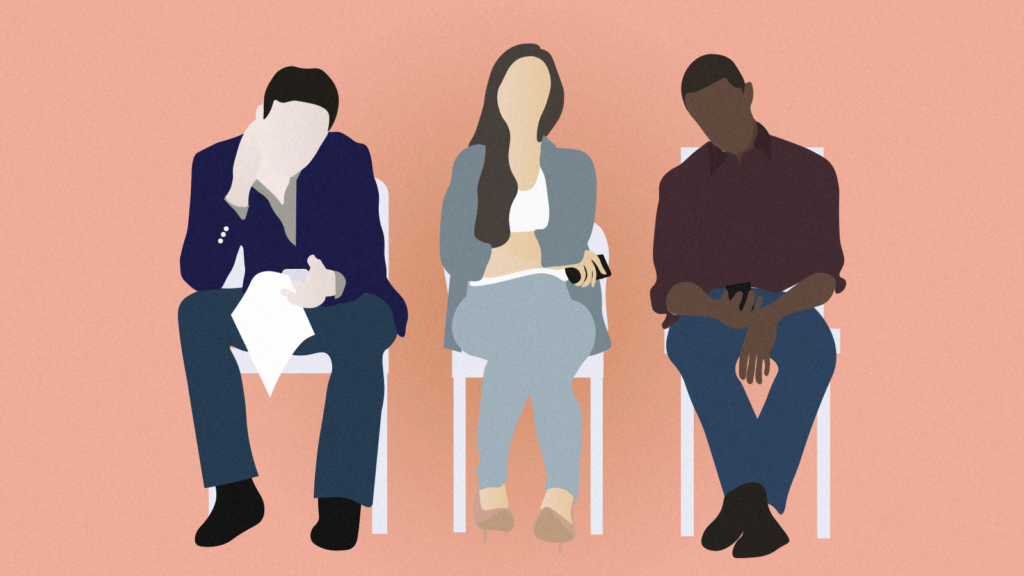The Importance of Body Language in an Interview
Gestures are an important constituent of every office meeting or appointment, and therefore of interviews. I believe it’s what kind of language you use that counts, how you deliver your words and the most important aspect – your appearance. In any job interview it’s important to understand that your nonverbal communication could have an impact in the decision of the employer. Even the body language you use repetitively shows the observers how confident, interested or professional you are.
Body language is crucial in an interview, that’s why in this blog post, we will focus on the role of body language in an interview, how it affects the overall success rate, and the specific tips on how to master it.

The role of nonverbal communication in interview.
Getting into an interview means agreeing to be evaluated not only through your answers that you give, but also by your body language. It was revealed that while using words, tone, and gestures, body language occupies the equivalent or even major portion of 55 % of the entire communication process.
Appropriate non-verbal communication shows confidence, approachability and business-like demeanor. The interviewer receives the impression that you are interested in the offered position as well as the company. However, poor body language may make the interviewer think that you are bored, intimidated or are lying, all of which are disastrous for an interview. Posture: Be confident more so with your shoulders aligned backwards after you enter the room. Ergonomics provide confidence when answering questions due to their professional posture.
Handshake: Give a good hand shake with smile. Handshakes which are too aggressive or on the contrary – too feeble will be a disadvantage, so use the middle way.
Eye Contact: Maintain eye contact with the interviewer the first time your eyes meet. It proves that you are assertive, self-employed, goal-oriented, and interested persons around you.
2. Overall Erect Body Language Throughout The Interview
Pay attention to the body language throughout the interview just as much as how you entered the room. Leaning over the table, shifting in the chair, or with folded arms, will be considered as signs that you are uncomfortable or not confident. On the other hand, keeping the posture straight- a typical indicator of confidence- in the body language is a sign that you are fully alert and fully into the meeting.
Sit up straight: It is wrong to recline excessively in the chair, as this may give the impression of carelessness, or to lean forward too much which gives a hint of impatience or nervousness.
Avoid crossing your arms: Standing with you arms crossed can make you seem defensive or uncomfortable. Avoid crossing your arms and place your hands on the lap or on the surface in front of you to avoid looking defensive.
Control your movements: Pretend tapping the chair with your hands, moving your legs constantly, or twirling objects can draw the interviewer’s attention and show nervousness. Try not to move around, or get nervous.
3. Eye Contact and Active Listening
Keeping eye contact during an interview can help the interviewer know that the interviewee is fully responsive and follows what is being discussed. But one must use a balance – when you stare at the interviewer you seem to be forcing your answers down his throat, but at the same time if you don’t even look at the interviewer directly you sound uninterested or even mysterious.
Balanced eye contact: Try to look into their eyes for 5-7 seconds and then make a break then look somewhere and then turn your attention back to the interviewer.
Nod to show understanding: Some micro-affirmations during the conversation indicate to the speaker that you are receiving their input and listening to them.
4. Smile and make facial gestures
It is important that you maintain certain body language and facial expressions during the interview as they help to decode your feelings and disposition. This means smiling makes you more approachable; people can approach you easily or feel at ease around you. However, there is no reason for those gestures to be fake and, more importantly, there is no reason for them to be out of place.
5. Hand Gestures
Your hand movements can also express interest or help to emphasize what you are speaking about. However, movements of the hands should be moderate or regulated so as not to distract or make one to appear nervous. It should be noted that hands gestures should be purposefully and environmentally appropriate.
Use natural gestures: Adding some hand movement when teaching a concept helps one to look more of confident as they will be convincing their audience.
Avoid fidgeting: Do not touch items such as pens, jewelry, hair and so on as this may portray that you are anxious or distracted.
6. The Importance of Mirroring
This is a unique approach to paraphrase the body language of the interviewer, and though done quietly, it is very effective. Normally, mirroring can be used to build rapport as a result, the interviewee will feel at ease with the interviewer. For instance, if during the conversation, one interviews leans slightly forward, in the following few seconds, the other may do the same. This technique should be applied with a lot of precautions with an aim of not appearing fake.
7. Confidence in Your Exit
It is essential to note that the start and the end of an interview also matter since they matter much as a first and final impression. The last thing that one should do when coming out from an interview is to stand tall, smile, say thank you, shake hands and look at the interviewer. Exiting the room with a straight back and head up relays the message out that you are a competent and capable candidate.

Conclusion: The Power of Body Language
It is said that how a candidate carries himself or herself in an interview speaks more than what he or she says in that interview. It is important that you keep good body language and have good eye contact, good facial expressions throughout the interview. Of course this can be rather uncomfortable but it needs to be remembered that your body is always speaking and you want to make sure that you are speaking the right language. So, on the one hand, developing accurate verbal strategies mixed with powerful nonverbal signals, it is possible to maximize the possibilities of winning the onus ans successfully getting the job.

